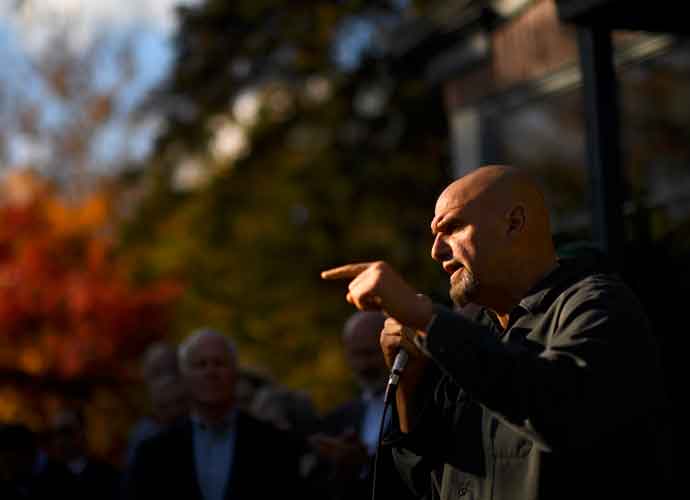Sen. John Fetterman Checks Into Hospital To Treat Clinical Depression
Sen. John Fetterman (D-Pennsylvania) checked into Walter Reed National Military Medical Center on Wednesday to receive treatment for clinical depression.
The first-year senator was hospitalized last week following a bout of light-headedness.
“While John has experienced depression off and on throughout his life, it only became severe in recent weeks,” his chief of staff, Adam Jentleson, said in a statement.
Jentleson confirmed Fetterman was receiving care from Dr. Brian P. Monahan, the attending physician in Congress. Fetterman is following guidance to remain in in-patient care.
Subscribe to our free weekly newsletter!
A week of political news in your in-box.
We find the news you need to know, so you don't have to.
“John agreed, and he is receiving treatment on a voluntary basis,” Jentleson said.
Fetterman’s health has been widely analyzed since he suffered a stroke in May 2022. According to his wife, the public scrutiny of his mental acuity has been “difficult” for Fetterman.
“After what he’s been through in the past year, there’s probably no one who wanted to talk about his own health less than John,” his wife Gisele Barreto Fetterman said in an email to his supporters. “It’s not easy for anyone to be open about mental health challenges. But I am so proud of him for asking for help and taking steps to get the care he needs.
“Our family is in for some difficult days ahead, and we ask for your compassion on the path to recovery.”
Senate members have adopted new forms of communication with Fetterman as he recovers from his stroke. Members have used audio-to-text technology to help communications with him.
Democrats have expressed support for Fetterman, recognizing the seismic shift in social acceptance of mental health struggles.
“Mental illness was considered a curse, not a medical problem,” Sen. Richard Durbin (D-Illinois) said. “Thank God that has changed. I credit many of our returning veterans from Iraq and other theaters who have convinced us this is simple medical, mental health care that many people need from time to time.”
In 1972, Thomas F. Eagleton was forced to drop off the Presidential ticket after his struggle with mental health was exposed to the public. Eagleton had been hospitalized for chronic depression and had gone through electroshock therapy.
Get the most-revealing celebrity conversations with the uInterview podcast!







Leave a comment